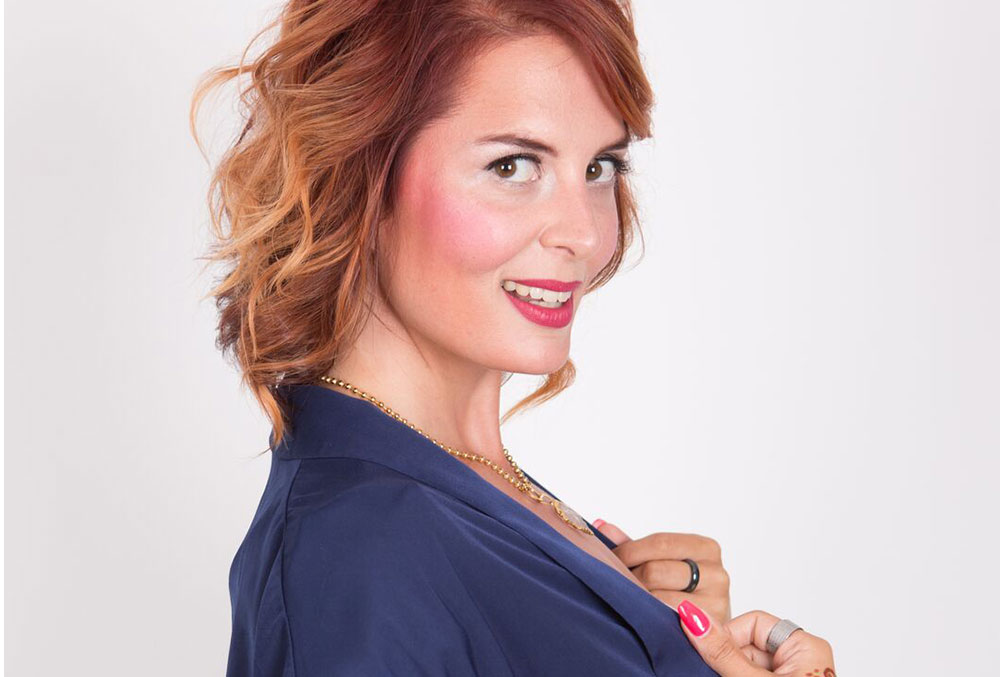Sex and intimacy are a huge part of relationships (duh), but oftentimes it’s the link between the act of sex and the feeling of intimacy in a relationship that can be broken, causing issues with yourself and in your relationships. We spoke with Dr. Carlen Costa, sexologist and relationship expert who is also appearing at the Everything To Do With Sex Show this weekend in Toronto, to gain some insight into one of the most important parts of any relationship. And she gave us some of the most candid relationship advice that we’ve ever received. Sex is supposed to be fun, remember?
29Secrets: Can you give us a bit of a background in what you do and how you help people?
I’m very fortunate. I have fun and I get to help people along the way. I work with both individuals and couples to help them achieve most intimate goals. With that, I support them in helping them achieve intimate happiness and relationship happiness”whatever that looks like for them, though it’s not always about the act of sex itself, but more about intimacy. In my practice and in the therapy room, I try to give some practical advice and tips when we get to that point. I also do workshops for couples and individuals as well. I just had a great workshop for women, but it’s a variety. I’m also working on this platform launching in November called Own Your Orgasm. While it can be for both men and women, it’s aimed at women helping them find their personal power.
What is one of the main aspects that you work on?
Communication is the number one thing that I work on with couples–especially couples. It’s not just communication between couples, but also communication with yourself as well for self-love and the messages that we send ourselves and how we process them, which isn’t necessarily in a relationship. I start by looking at the bigger picture and then look at what is happening with each person individually. We can’t be great lovers until we love ourselves best, so I look at what’s happening with the individual and then we can see how to translate self-love into the relationship. Sometimes the work is quick and sometimes that work is identifying why a person and their partner aren’t clicking.
What do you think it means to have a healthy sexual relationship in a long-term relationship?
The way we express ourselves intimately needs to be looked at on a fluid spectrum. At some point, our libidos are really high, but then stress happens, job changes happen and life happens and that may impact our libido. A lot of people stay really level in the same range, but throughout our life cycle, that does become an ebb and flow. Negotiating that in a relationship can be the challenge and it can flip between partners and turn around. How do you maintain connection with your partner, lover or spouse? That is what’s really important to maintain. If sex leaves your relationship, oftentimes other things do start to fall, but people stick through it for different reasons. Sex is something that we all need, but it’s more the intimacy of it”not just the act of sex itself.
What are some of the challenges twenty and thirty-somethings face in their relationships?
I get it in this age bracket because I’m in this age bracket. When I did my thesis, I focused it on digital and social media and the impact on relationships”that was five years ago. The past five years have been insane and so much has changed since then, too. We’re seeing a lot of young people in business and people are waiting a little longer to settle down and start a family. They’re establishing their careers before focusing on long-term intimate connections. Another thing that is impacting people is the way the dating landscape has changed and learning how to navigate it. How do you even meet people anymore? People often start dating with this checklist in their head. It’s one thing to have a solid idea of what you want from someone–someone who has a job, has a good heart, calls their family–because it can be very empowering for people to know what they want and that’s okay. We can create these checklists as a way to be efficient when we’re dating and efficiency can be very powerful, but where it can be detrimental is not taking the chance to get to know people and forgetting how to have real conversations.
How do you help people identify some of their issues when it comes to dating?
I ask them: What are your fears, desires and boundaries? How is that manifested in your personal power? Once you can recognize what those things are, we can look at the relationships you’ve been in and look at patterns. Is it you that is the common thread? Is it a type of person you’re dating? We look at the real story behind your dating life and try to uncover those intimate patterns.
Therapy often has such a stigma attached to it, so how can you help people recognize that they might need support in this area?
Everyone is a guru these days, but there are people who support others and know what they’re talking about. For me, it’s all about speaking my truth. I show people what I do and how I can support them and it’s always in the spirit and truth of love. I tell people that if anything I say resonates then come and talk. Therapy doesn’t have to be about crying. I always tell people that we’re going to start with a conversation and see what happens and that tends to put people at ease. Think of me as one of your girlfriends that just happens to have more expertise on the topic.
What can people expect from your seminar at the Everything To Do With Sex Show?
I’m doing seminars on oral sex. When you come and see me, you can expect to learn some new tips and tricks and have a lot of fun. I keep it spicy, saucy and sassy.
Can you give us a quick tip?
Okay, the Dr. Carlen oral sex tip: It’s all in the wrist. Whether you’re practicing or performing on a man or woman, it’s all in the wrist. Always keep your wrist loose and well rotated and be confident. Oh, and keep it lubricated!
We know that there is no “normal” amount of sex you should or shouldn’t be having, but how do you help couples identify their normal and align their preferences to work for them?
Normal doesn’t even really depend on the couple, it depends on the level of your personal happiness. If you’re happy, if you’re feeling satisfied, if you’re feeling sexually self-activated, then that’s normal. Some people feel so empowered outside of a relationship, but don’t realize that they’re missing a really key component with intimacy, and, of course, the healing power of the orgasm. It’s about finding balance, and that’s what normal is. It’s not about frequency, it’s about quality. Studies show that 60 per cent of people are lonely and, of that 60 per cent, 55 per cent of those people are married. That makes me think, whats going on? Where are you finding your balance? We get caught up in jobs, kids, money and and all the other stuff and we forget that pleasure and intimacy are just as important as all of those other things.
What are some common red flags in relationships that often go ignored?
You stop talking, you stop sharing, you stop listening, you stop touching. You stop creating, whether that’s plans, ideas or a vision of the future–those are some of the big red flags. When you look at your partner and start resenting them and where you are in your life with them, that’s a red flag. That doesn’t necessarily mean that there’s a red flag for the person you’re with [unless there is], but maybe there’s something in the relationship or within yourself that has to change. Sex is always the number one thing to go and a lot of people don’t address the fact that that’s a problem.
What should we all be doing more of in the bedroom?
Talking! That is what they need to be doing more. I’m not saying dirty talk. I’m saying we need to be okay with expressing our fears, desires and boundaries. What are your fantasies? What feels good? And stop faking your orgasms! It’s my nightmare when I hear that women fake their orgasm”80 per cent of women have faked it. We feel this shame or guilt in the bedroom and have a hard time expressing what we want to experience intimately.
How can people be more open about their sexual desires if they’ve had a hard time in the past?
Intimacy is a movement of energy and pleasure, which is an energetic experience that our bodies have. Often if you’re not empowered in the bedroom, you’re not that empowered out of it either. We have this “fake it ’til you make it” idea in our lives and that often translates to our sexuality–but we shouldn’t be faking orgasms! Ask yourself if you enjoy your sex life. If you’re answer isn’t an enthusiastic “Hell yes!” then it’s a no. Anyone can give you better tips for giving a better blowjob and that stuff is always great and necessary, but what it comes down to is your experience and your personal power and how you experience love in your life. Once you start to reflect on that, that’s where you’re going to see changes.
Want more sex advice? Check out Dr. Carlen and other experts at the Everything To Do With Sex Show this weekend.












